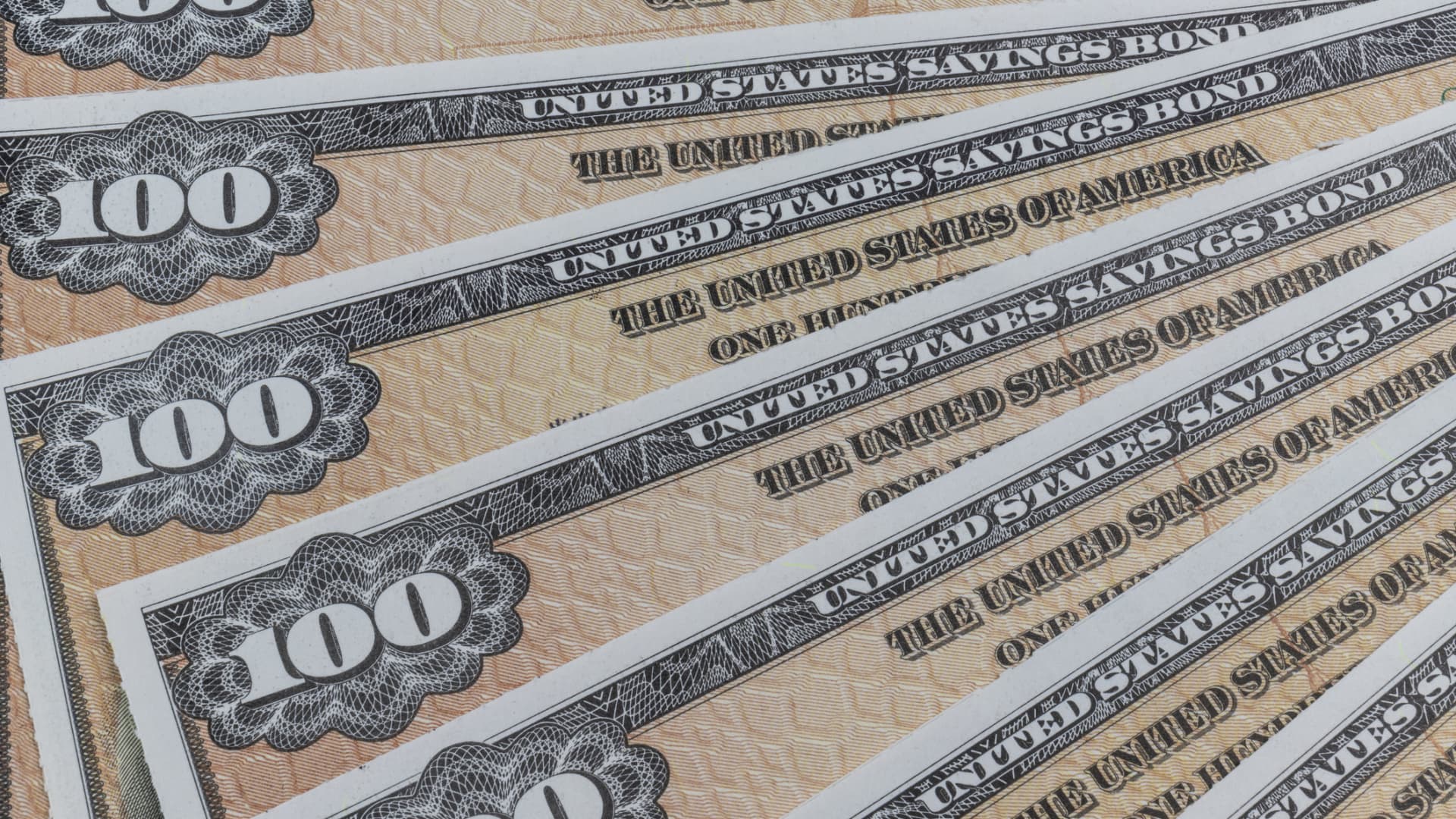
This is CNBC's live blog covering Asia-Pacific markets.
Asia-Pacific markets mostly extended gains from Monday as tech shares rebounded on Wall Street and investors assess flash business activity figures from Australia, Japan and India.
Figures from S&P Global show that Australia's composite purchasing managers index hit a two-year high, coming in at 53.6 against March's 53.3.
Japan and India also recorded faster rates of expansion in their business activity in April.
We're making it easier for you to find stories that matter with our new newsletter — The 4Front. Sign up here and get news that is important for you to your inbox.
Hong Kong's Hang Seng index climbed almost 2%, leading gains in Asia, while the CSI 300 on mainland China slipped 0.7% to 3,506.22, marking a third straight day of losses.
Japan's Nikkei 225 gained 0.3%, ending at 37,552.16, while the broad based Topix was up 0.14% at 2,666.23.
The S&P/ASX 200 advanced up 0.45% after the PMI release, closing at 7,683.5.
Money Report
South Korea's Kospi inched down to 0.24% to 2,623.02, and the small cap Kosdaq lost 0.04% to end at 845.44.
Overnight in the U.S., the S&P 500 and Nasdaq Composite both snapped six-day losing streaks, gaining 0.87% and 1.11% respectively, while the Dow Jones Industrial Average climbed 0.67%,
Chipmaker and artificial intelligence favorite Nvidia climbed 4.4%, bouncing from a nearly 14% sell-off last week, its worst since September 2022. Arm Holdings also rebounded nearly 7% on Monday.
U.S. crude prices slipped after Iran said it will not escalate the conflict with Israel. Investors had been concerned higher oil prices could contribute to inflation, leading the Federal Reserve to hold off on cutting rates.
— CNBC's Brian Evans and Jesse Pound contributed to this report.
Singapore's headline inflation rate falls to lowest since September 2021
Singapore's headline inflation rate fell to its lowest since September 2021, coming in at 2.7% for March.
This was lower than the 3.4% rate in February and also below the 3% expected by economists polled by Reuters.
The city-state's core inflation rate — also known as the "MAS core inflation measure" — which strips out prices of accommodation and private transport, also fell to 3.1%, down from 3.6% in February.
— Lim Hui Jie
India business activity expands at its fastest rate in 14 years in April
India's business activity climbed at its fastest pace in 14 years, with the flash composite purchasing managers index for April coming in at 62.2, up from 61.8 in March and higher than the 61.4 expected by economists polled by Reuters.
According to HSBC, the manufacturing and services sectors also recorded-faster-than expected expansions, with the PMI standing at 59.1 and 61.7, respectively.
This compares to Reuters' PMI expectations of 58.8 for manufacturing and 60.5 for services.
Pranjul Bhandari, chief India economist at HSBC, attributed the outperformance to a "strong performance in both the manufacturing and service sectors, led by increased new orders." HSBC added that growth in India remained "broad-based" across the manufacturing and service sectors.
— Lim Hui Jie
Chinese bubble tea company Chabaidao tumbles 30% in Hong Kong trading debut
Shares of Chinese bubble tea chain Chabaidao, officially listed as Sichuan Baicha Baidao Industrial, opened 10% lower in early trade on its trading debut in Hong Kong, before plunging more than 30%.
It is currently trading at HK$12.32, far below its IPO offer price of HK$17.50.
The IPO is Hong Kong's largest listing so far this year. The company announced it had garnered net proceeds of 2.59 billion Hong Kong dollars ($330.5 million) from its IPO, before listing expenses.
Chabaidao offered 90% of its 147.7 million shares in a global offering, while the remainder 10% were offered in a public offer in Hong Kong.
However, the public offer was only 0.5 times subscribed, leading the firm to reallocate the remainder of the shares to the global offer, which was 1.11 times subscribed.
— Lim Hui Jie
Japan's business activity climbs at fastest pace in 8 months
Japan's business activity in April expanded at its fastest pace in eight months, according to flash figures from au Jibun bank.
The country's composite purchasing managers index climbed to 52.6 from March's 51.7, its joint-highest level since August.
Japan's manufacturing PMI came in at 49.9, marking a softer decline from the 48.2 in March, while services PMI was at 54.6, up from 54.1 in March.
— Lim Hui Jie
Yen hits fresh 34-year low of 154.85 early Tuesday
The Japanese yen weakened to a fresh 34-year low against the U.S. dollar early Tuesday, hitting 154.85 against the greenback.
This is the weakest the currency has been since the mid-1990s, although it has strengthened marginally to 154.74 as of 9:18 a.m. Tokyo time.
The currency will be watched by the Bank of Japan as it meets Friday, although the central bank has not announced a level where it will intervene.
— Lim Hui Jie
Australia's business activity expands at fastest pace in 24 month: S&P Global
Australia's business activity in April expanded at its fastest clip in 24 months, according to flash figures from S&P Global.
The country's composite purchasing managers index came in at 53.6, compared to 53.3 in March.
Manufacturing PMI climbed to 49.9 from 47.3, just shy of the 50 mark that separates expansion from contraction, while services PMI slipped slightly to 54.2 from 54.4.
— Lim Hui Jie
CNBC Pro: 'Bargain' energy stocks: Morningstar strategist picks 5 to buy as oil prices slide
Heightened geopolitical tensions have triggered volatility in crude oil prices, but one strategist is looking keenly for opportunities in the energy sector.
It was among the laggards last year, but things have turned around with many stocks now trading near all-time highs.
Stephen Ellis, energy and utilities strategist at Morningstar, said oil market volatility does present challenges and urged investors to be patient, which "regularly pays off within energy."
However, he did say there were "selective bargains" in the market currently and revealed five stocks in the energy space he likes right now.
CNBC Pro subscribers can read more here.
— Amala Balakrishner
CNBC Pro: When Tesla shares fall — these 6 stocks tend to rise, according to recent history
Six stocks in the S&P 500 tend to rise when Tesla shares fall, according to an analysis of recent data by CNBC Pro.
The share price performance of these six stocks was inversely correlated to Tesla's last month. They have typically shot up this year, in contrast to a 40% plunge for Tesla.
CNBC Pro subscribers can read more about the six stocks here.
— Ganesh Rao
U.S. crude oil hovers near $83 after Iran says it will not escalate conflict with Israel

Crude oil futures edged lower on Monday after Iran said it would not escalate the conflict with Israel.
The West Texas Intermediate contract for May fell 29 cents to settle at $82.85 a barrel, while June Brent futures fell 29 cents to settle at $87 a barrel. U.S. crude oil and the Brent fell 3% last week. The two benchmarks are up nearly 16% and 13% this year, respectively.
Iranian Foreign Minister Hossein Amirabdollahian told NBC News the country does not plan to respond to Israel's retaliatory strike launched Friday.
— Spencer Kimball
Ned Davis Research says investors should reduce exposure to U.S. bonds

Investors should dial back their exposure to U.S. bonds as Fed rate cuts increasingly appear to be pushed into the future, according to Ned Davis Research.
Joseph Kalish, the fund's chief global macro strategist, said in a note to clients that NDR was reducing its exposure to U.S. bonds in its global fixed income allocation model to a market weight position from an overweight position.
"A flight to safety trade last week temporarily helped U.S. bonds outperform. But fundamentals and technicals continue to work against U.S. debt relative to other economies. The U.S. economy remains firm, inflation is sticky, and the Fed keeps pushing back when it will cut rates," the note said.
Investors should replace that exposure with incremental additions to European and Japanese bonds, according to Ned Davis Research.
— Jesse Pound
Gold hits one-week low
Gold futures were lower on Monday and were on pace for their first lost in three sessions.
Bullion hit a low of $2,344.70 per ounce earlier on Monday, its lowest level since April 15. The VanEck Gold Miners ETF (GDX) is also on track for its worst day since Feb. 13.
— Brian Evans, Nick Wells






